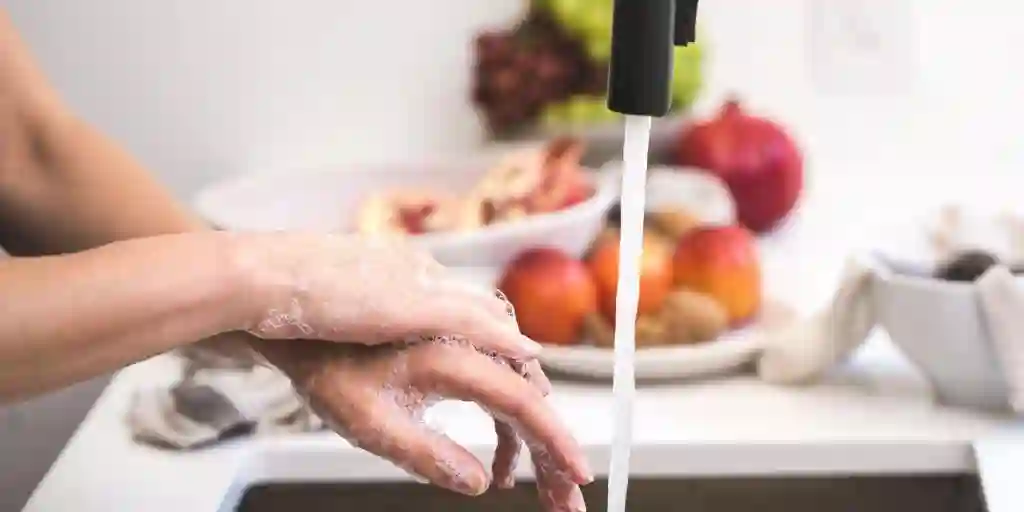Staying healthy while cooped up at home can be challenging, but it doesn’t have to be. These simple tips from our experts will help you protect your health and avoid stress while confined to your home.
Get moving! Exercise (as long as you maintain proper hygiene and social distancing) can reduce anxiety and boost your immune system.
1. Eat Healthy
Practices like eating well, getting enough sleep and staying physically active are important for optimal health. But with many people practicing social distancing and isolation at home, these healthy habits can get put on the back burner.
It’s important to eat on a regular schedule and not go too long between meals. This can prevent over-eating or unconscious eating out of boredom.
Meal prep is a great way to prepare nutritious, easy-to-eat meals. Having your meals planned (like oatmeal for breakfast or chicken stir-fry leftovers for lunch) and in the fridge can make it easier to not skip meals or overeat later on.
It may also help to eat high-protein, low-sugar, lower-fat foods to keep you feeling full and satisfied. You can also eat lots of veggies and whole grains.
2. Move Your Body
While it may feel tempting to stay in bed all day and binge your favorite shows, keeping an active lifestyle is key to staying healthy while stuck at home. A sedentary lifestyle can lead to depression and anxiety, and it increases your risk of disease.
Exercise can help boost your mood and improve your immune system. If you can safely get outside (remembering to wear a mask and maintain social distancing), try walking around your block, taking a bike ride or going for a walk with friends.
If in-person workout classes or the gym are off-limits, there are plenty of free at-home fitness videos available. You can also do simple bodyweight exercises at home, like push-ups on the countertop or a series of 10 jumping jacks.
3. Get Enough Sleep
Getting enough sleep is critical for your health and wellness. Not only does it help to boost your immune system, but it also helps you learn and remember things and improves your overall mood.
Try to maintain a regular sleeping schedule, even on the weekends, so that your body’s natural circadian rhythm stays balanced. This will keep your levels of melatonin, the hormone that signals the brain it’s time to sleep, high.
Many factors can affect your ability to fall and stay asleep, including shift work, stress, bright lights from home lighting fixtures and technology and snoring. Start by identifying which factors are the most significant and then take steps to overcome them, like listening to a sleep meditation before bed or swapping out TikTok for a book.
4. Stay Hydrated
Water is the elixir of life and it’s vital to surviving dehydration, which can occur more quickly in warmer temperatures. It is recommended to drink a minimum of eight glasses of water a day. If you’re exercising or if it is very hot outside, you may need more water than this.
Consider adding fruits and vegetables to your diet that have high water content, such as strawberries, radishes, watermelon, cucumber, and spinach. You can also try carb alternatives like zucchini noodles (Zoodles) with tomato sauce or grilled chicken with white beans, which are both rich in water.
If you are consuming alcohol or caffeinated beverages, stick to the one-to-one rule for every beverage you consume, have a glass of water too. This will help reduce dehydration and prevent hangovers.
5. Stay Organized
During the pandemic, many people will finally take care of chores that have been waiting for “when they had time.” That includes organizing rooms that have gone neglected or tackling major home improvement projects.
To prevent getting overwhelmed, focus on one room or area at a time. Start with a space like your pantry, closet, or bookcase and tackle it bit by bit. Afterward, reward yourself with something fun, like a favorite snack or treat or a movie.
To keep clutter at bay, create a landing spot for items you use daily, such as your keys and phone, says Vig. Also, consider switching to open bins rather than stacking ones. This way, you’re more likely to put things away after using them. Plus, it will be easier to see what you have and what you need.














